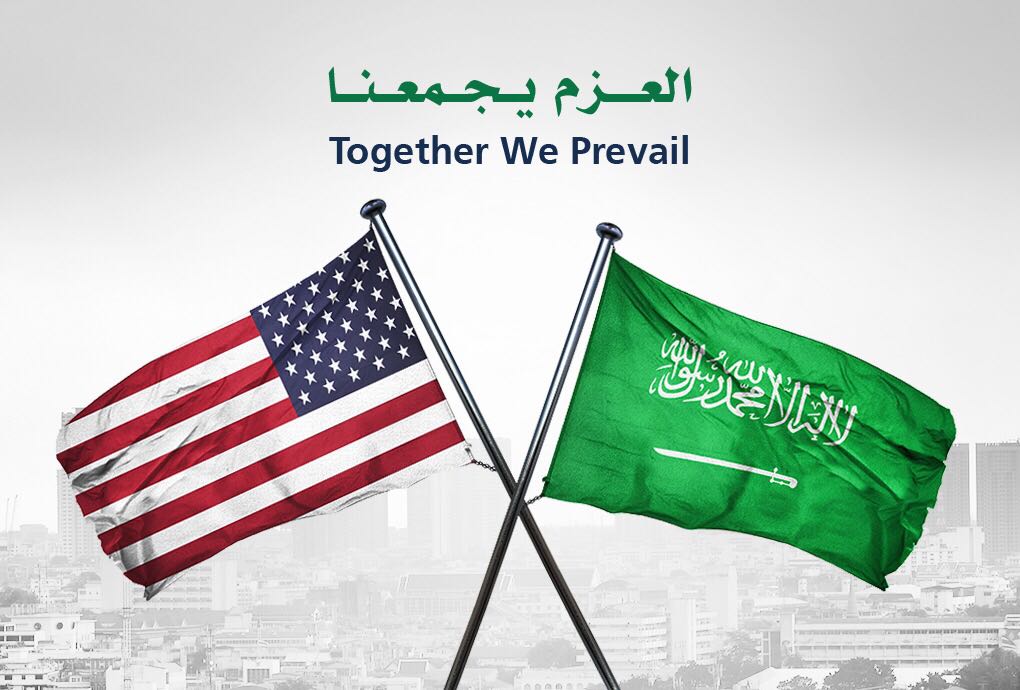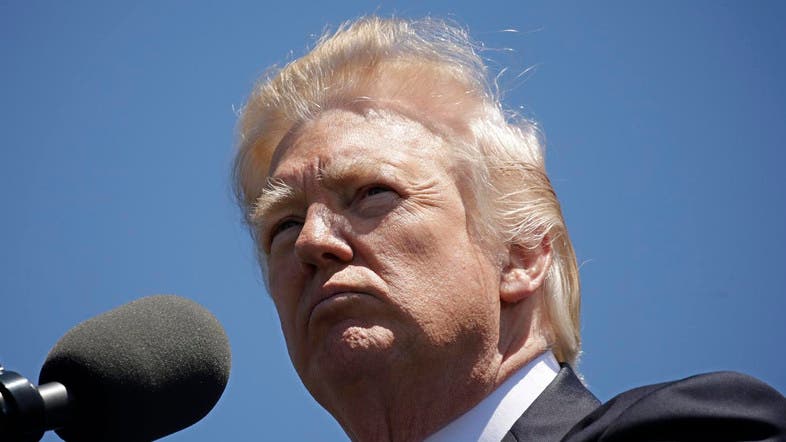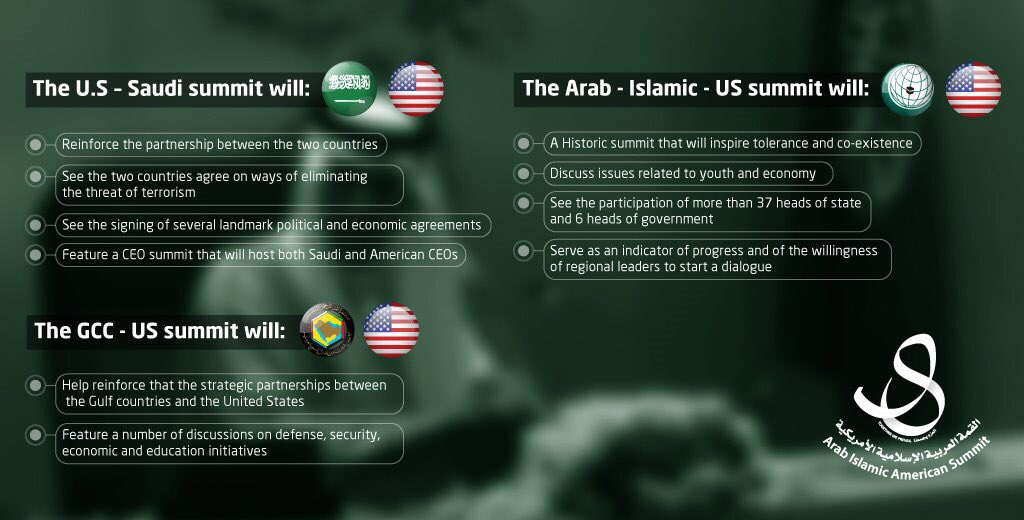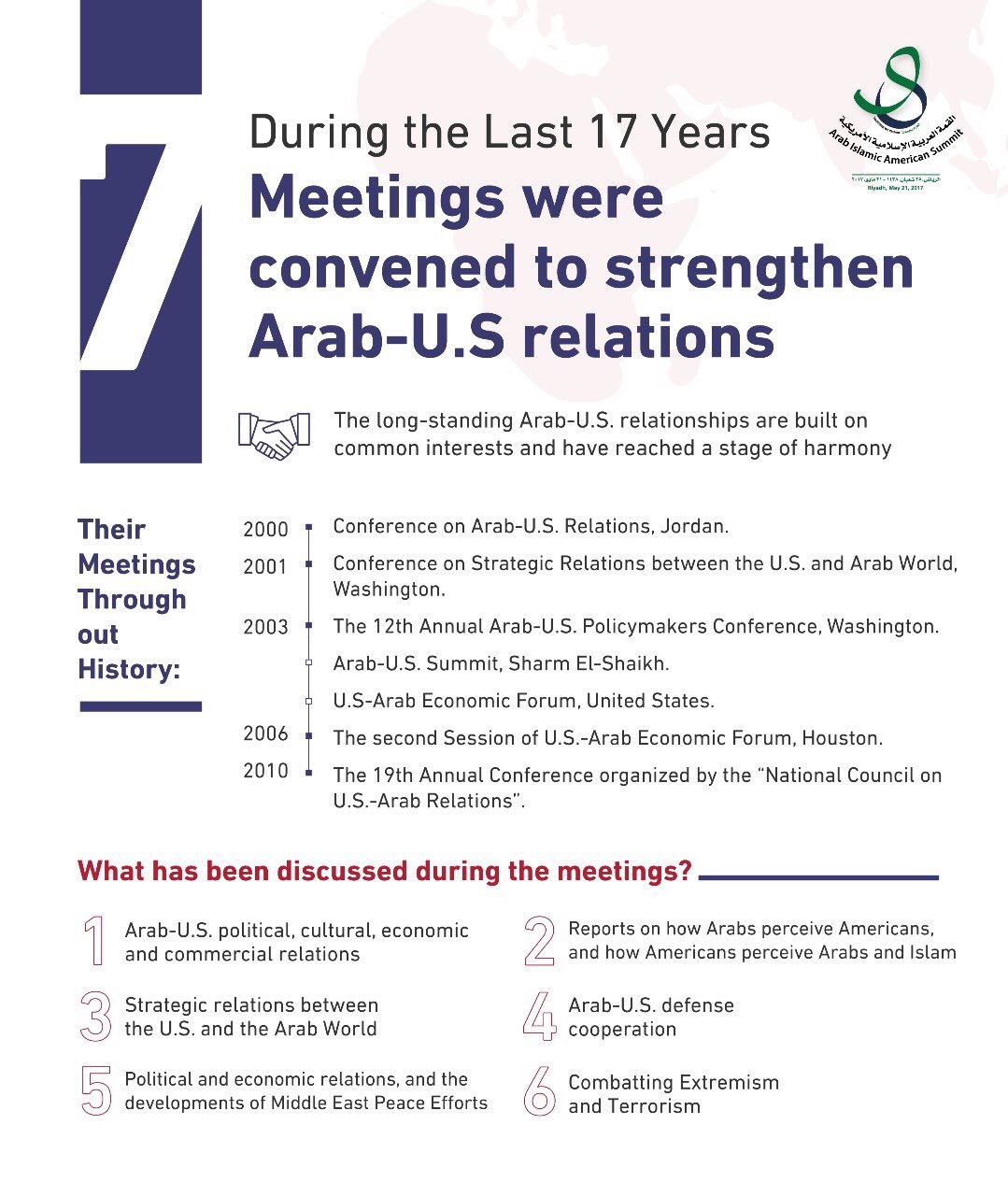Saudi Arabia prepares for Trump’s historic visit
Saudi Arabia has welcomed Trump’s hard rhetoric on Iran, which contrasts with the outreach that culminated in the Obama era (Reuters)
AP, DubaiFriday, 19 May 2017
Text size
Toby Keith who is to perform in the Saudi capital, Riyadh.
Trump’s decision to make Saudi Arabia his first overseas stop sends a powerful message to the kingdom: the strained ties that marked US-Saudi relations under president Barack Obama are over.
The kingdom wants Trump to align US interests with Saudi Arabia’s — and is literally counting down the seconds until Trump starts his meetings Saturday. A website for the visit was launched in English, Arabic and French, featuring a countdown clock under the banner: “
Together We Prevail.”
“The foundation will be laid for a new beginning” to confront extremist ideology, the website declares, while also touting Saudi Arabia’s Vision 2030 a wide-reaching reform plan launched by Saudi Deputy Crown Prince Mohammed bin Salman, to overhaul the economy and restyle the country through greater openings for investment and entertainment.
For Saudi Arabia, the most significant event is the Arab-Islamic-US summit, where it plans to showcase the kingdom’s reach and drawing power.
Trump wants NATO-like force for the Middle East
King Salman is convening more than 50 Arab and Muslim leaders for the summit in Riyadh on Sunday. They will feast with Trump at a banquet and “forge a new partnership” in the war against extremism, the king said this week. Sudan’s president, who has been shunned by the United States for the past decade, is among those invited.
“Saudi Arabia is delighted at being the No. 1 (stop for Trump’s visit), delighted by the re-emergence of a strong diplomatic relationship with the United States and delighted by the opportunity to show off Saudi leadership of the Arab and the Muslim world by getting everybody to turn up in Riyadh for multiple, overlapping summits,” said Simon Henderson, director of the Gulf and Energy Policy Program at The Washington Institute.
Saudi Arabia has long vied to be the Islamic world’s center of influence. The kingdom hosts millions of Muslim pilgrims annually at holy sites in Mecca and Medina — a fact that Trump’s national security adviser, H.R. McMaster, noted when announcing Trump’s decision to visit Saudi Arabia first.
Though the Saudi government is framing Trump’s visit around a theme of friendship with Washington, prominent Saudis say it boils down to strategic interests.
INTERACTIVE: Discover the full schedule of Trump’s visit to Saudi Arabia
“President Trump will not come to Riyadh because he loves us. The Gulf and Muslim leaders will not come to Riyadh because they love him,” writer Ziad al-Drees wrote in the pan-Arabic newspaper al-Hayat.
“The common interests of these international leaders are what bring them together in Riyadh,” he said, including issues ranging from terrorism to rekindling US ties post-Obama.
Iran and Syria were not invited to the summit and they are not part of an Islamic military alliance that Saudi Arabia is establishing to fight terrorism. The kingdom backs efforts to topple the Syrian government, which counts Iran and Russia as its closest allies.
Saudi Arabia has welcomed Trump’s hard rhetoric on Iran, which contrasts with the outreach that culminated in the Obama administration’s nuclear deal with Tehran. Deputy Crown Prince Mohammed said earlier this month that Obama “wasted many significant opportunities” in Syria.
Prince Mohammed has ruled out any dialogue with Iran, framing the tensions in sectarian terms and accusing Iran of trying to “control the Islamic world”.
The prince’s foundation is hosting the forum where Trump is expected to deliver a speech to the Muslim world on Sunday.
William McCants, director of US relations with the Islamic world at the Brookings Institute, says the Saudis are keen to prove to Trump that he is “getting a good deal” by aligning himself closely with Riyadh.
A parallel art exhibition focuses on modern Saudi art and a Twitter forum will engage young Saudis on how to “utilize social media networks to counter extremism and terrorism.” It is at this event where Trump is scheduled to make his address. It is also where Fox’s Baier is confirmed as a speaker.
Saudi Arabia, which wants Trump to do more to assist in its war in Yemen and help in the fight to oust President Bashar Assad, has arranged separate talks between Trump and the six-nation Gulf Cooperation Council, which includes the United Arab Emirates, Qatar, Kuwait, Oman and Bahrain.
All are members of the US coalition striking ISIS targets in Iraq and Syria, as well as among the world’s top energy producers and biggest military spenders. The largest US military base in the Middle East is in Qatar, and Bahrain hosts the US Navy’s 5th Fleet, which frequently has tense encounters with Iran’s navy in the Gulf.
Rounding out the weekend’s events is a US-Saudi business forum with CEOs from companies like GE and Dow Chemical, as well as Saudi Arabia’s state-run oil company Aramco. Partnership agreements in energy and technology will likely be signed.









